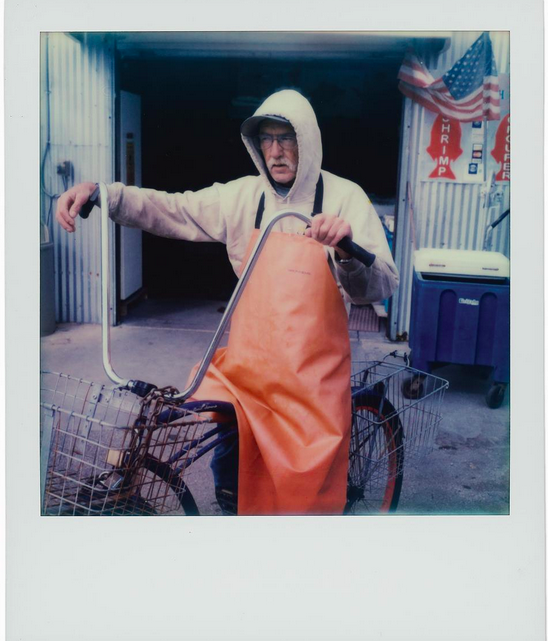
A Widening Gulf
for WWF Magazine(For the full story, click here)
By all appearances, Kyle Wallis has a perfect life. A college graduate, he has a steady job as an engineer at a local power plant. He owns a house right near his hometown of Palacios, Texas. He has two kids, a supportive wife, and a 401(k).
Yet, late on a chilly Saturday morning in November, jet-lagged from a business trip the previous day, he’s here at the docks loading pallets full of shrimp. Kyle owns a nominal percentage of one of the seven boats operated by his father Craig’s company, but that’s not why he’s here on this frigid pier.
“It’s a family heritage thing for me. It’s been born and bred in me. I’ve been here doing it since I was eight years old—being around the waterfront,” he says. “You are going out on the water, catching food for the American people, feeding the public. You feel like you are doing something worthwhile.”
Kyle is a third-generation shrimp boat owner. This morning, one of his father’s boats is unloading about 20,000 pounds of brown shrimp that will soon find its way from the Gulf of Mexico to dinner plates throughout the United States.
There’s not a lot to be done; his father and the crew have it well in hand. But Kyle takes a few turns on the forklift anyway, loading 1,500-lb pallets piled high with orange bags of shrimp into a freezer truck. He talks a little business with his dad and jokes with some of the workers, but mostly he just takes it all in. He says that this is all he really wants—to take over the family business running shrimp boats on the Gulf. He’d quit his job tomorrow, taking a pay cut, and work here full time if he thought the US shrimping industry would be here long enough for his kids to go to college.
But instead he waits. Alongside his father.
“I’ve got a son who wants to get back involved [in the company]. But is this business here for another 30 years?” Craig Wallis says. “You can’t stay in business if you can’t pay your bills.” The Wallises haven’t bought a new boat since 2000 and still run some bought in the 1970s. According to the National Oceanic and Atmospheric Administration, 15 years ago the Gulf fleet was 3,000 to 4,000 strong, but today it’s around 1,400 (a local shrimp advisory panel estimates that no more than 1,000 are active). The opposite end of the bay, once full of shrimpers, now has only a few smaller boats run by aging Vietnamese fishers who came here after the war.